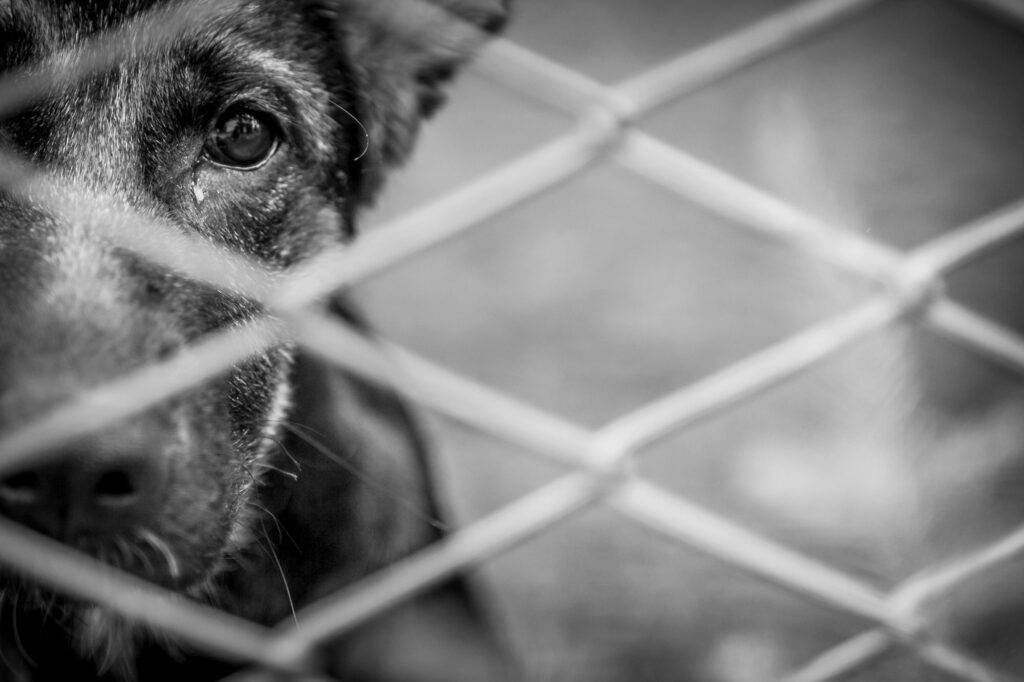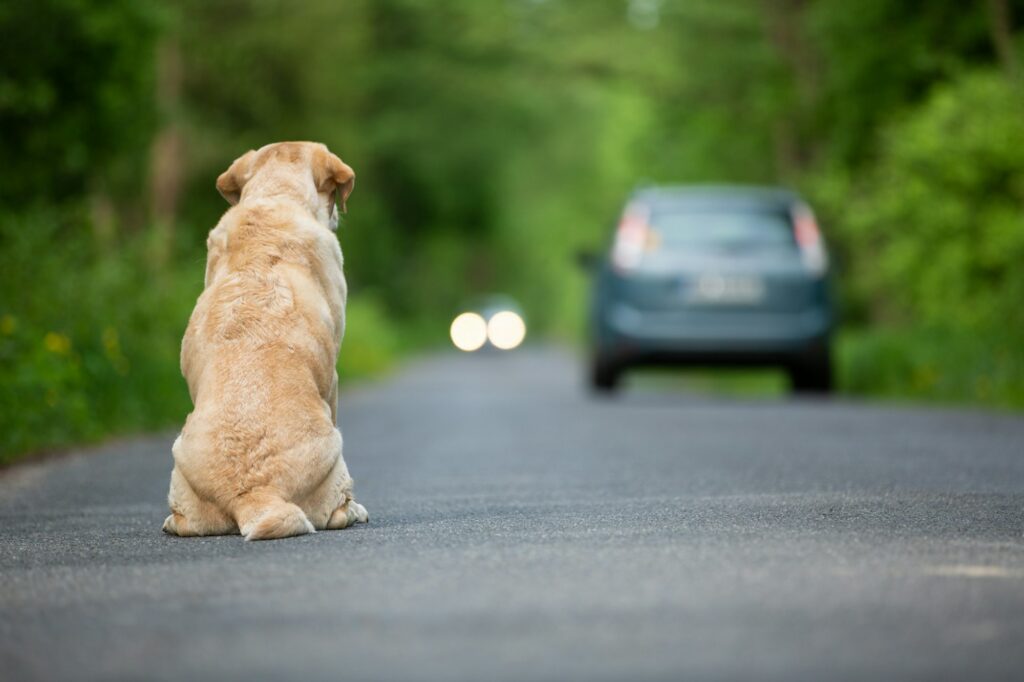Animal abuse is a critical issue that affects countless animals in Washington D.C. every year. This blog aims to shed light on the various forms of animal abuse, the signs that may indicate an animal is being mistreated, and the specific laws in place to protect them. By understanding the severity and nuances of animal abuse, we can better advocate for the welfare of our furry friends and work towards a future where all animals are treated with the respect and care they deserve.
The Different Types of Animal Abuse
Animal abuse can manifest in numerous ways, each with its own devastating impact on animals’ well-being. Understanding the different types of abuse is crucial in recognizing and preventing these harmful behaviors. Here are some of the different forms of animal abuse, ranging from inadequate shelter and physical abuse to more insidious acts like dogfighting and animal hoarding. By identifying these types, we can better protect animals and ensure they receive the care and respect they deserve.
Inadequate Shelter
Providing your pet with inadequate shelter is a common form of animal abuse in Washington D.C. Pets left without proper shelter are vulnerable to extreme weather conditions, which can lead to severe health issues or even death. Inadequate shelter means not providing a safe, dry, and warm space for the animal to rest and seek refuge. This form of neglect is a significant aspect of animal abuse in Washington D.C., as it directly impacts the animal’s well-being and quality of life. Ensuring pets have appropriate shelter is crucial in protecting them from the elements and promoting their overall health and happiness.
Beating and Physical Abuse
Beating and physical abuse are some of the most overt forms of animal abuse in Washington D.C. This type of abuse involves intentionally causing bodily harm to an animal through hitting, kicking, or other forms of violence. The physical trauma inflicted can result in severe injuries, chronic pain, or even death.

Recognizing the signs of physical abuse, such as unexplained bruises, broken bones, or wounds, is essential in identifying and preventing further harm. Addressing beating and physical abuse is a critical step in tackling the broader issue of animal abuse in Washington D.C. and ensuring that all animals are treated with the compassion and care they deserve.
Dogfighting
Dogfighting is a brutal and illegal activity that involves pitting dogs against each other in violent confrontations, often to the death, for the purpose of entertainment and gambling. In Washington D.C., dogfighting is a significant concern as it not only causes severe physical injuries and emotional trauma to the animals involved but also perpetuates a cycle of cruelty and violence within the community. Dogs used in fighting are typically subjected to harsh training methods, poor living conditions, and a lack of proper medical care. The clandestine nature of dogfighting rings makes it challenging for authorities to intervene, but increased awareness and community involvement are crucial in identifying and dismantling these operations. By understanding the signs of dogfighting and reporting suspicious activities, we can help protect these animals and work towards eradicating this inhumane practice.
Animal Hoarding
Animal hoarding is a severe form of animal abuse in Washington D.C. that involves keeping an excessive number of animals in conditions where they cannot be adequately cared for. This often results in severe neglect, with animals suffering from malnutrition, untreated medical conditions, and unsanitary living environments. The hoarder may have good intentions but lacks the resources or understanding to provide proper care, leading to a decline in the health and well-being of the animals. Animal hoarding not only affects the animals but also poses health risks to the hoarder and the community. Recognizing and addressing animal hoarding is essential in combating the broader issue of animal abuse in Washington D.C. and ensuring that all animals receive the care and respect they deserve.
Neglect
Neglect is a prevalent and often overlooked form of animal abuse in Washington D.C. It occurs when an animal’s basic needs, such as food, water, medical care, and proper living conditions, are not met. This type of abuse can lead to severe health issues, suffering, and even death. Neglect may manifest in various ways, including malnutrition, untreated illnesses or injuries, and filthy or hazardous living environments. Addressing neglect is essential in the broader fight against animal abuse in Washington D.C. By recognizing and reporting signs of neglect, we can help ensure that all animals receive the care and compassion they deserve.
Signs of Animal Abuse in Washington D.C.
Recognizing the signs of animal abuse in Washington D.C. is crucial in ensuring the welfare of animals. Being aware of the various indicators of abuse can help individuals take prompt action and report any suspicions to the appropriate authorities. This section will outline the physical, behavioral, and environmental signs that may suggest an animal is being mistreated. By understanding and identifying these signs, we can work together to protect animals from harm and create a safer environment for all.
Physical Signs

Physical signs of animal abuse in Washington D.C. can include a variety of visible injuries and conditions. These may range from unexplained bruises, cuts, and wounds to broken bones and limping. Additionally, animals may show signs of malnutrition, such as visible ribs or a generally emaciated appearance, indicating a lack of adequate food and water. Other physical indicators can include poor coat condition, chronic infections, or untreated illnesses. Recognizing these physical signs is essential for identifying instances of abuse and ensuring that appropriate action is taken to protect the affected animals and provide them with the necessary care and treatment
Behavioral Signs
Behavioral signs of animal abuse in Washington D.C. can be subtle but are crucial indicators of mistreatment. Animals that have been abused may exhibit extreme fear or aggression towards humans or other animals, often cowering, hiding, or showing signs of anxiety when approached. Sudden changes in behavior, like becoming withdrawn or unusually aggressive, can also be red flags. Additionally, animals may show signs of depression, such as a lack of interest in play or activities they previously enjoyed. Repetitive behaviors like pacing or excessive grooming can indicate stress and psychological trauma. Recognizing these behavioral signs is essential for identifying cases of abuse and taking steps to ensure the affected animals receive the proper care and intervention they need.
Environmental Signs
Environmental signs of animal abuse in Washington D.C. can be indicative of neglect and poor living conditions. These signs may include dirty, cluttered, or hazardous environments where animals are kept, leading to health issues and injuries. Animals may be found living in spaces with excessive waste, inadequate ventilation, or insufficient access to clean water and food. Additionally, the presence of multiple animals in cramped or overcrowded conditions can be a red flag, as it often points to hoarding situations or neglect. By recognizing these environmental signs, individuals can help identify cases of animal abuse and take appropriate action to ensure the animals are removed from harmful situations and placed in safe, sanitary environments where they can receive proper care.
Specific Laws Surrounding Animal Abuse in Washington D.C.
Washington D.C. has enacted several specific laws to combat animal abuse and protect the welfare of animals within the district. These laws address various forms of mistreatment and provide guidelines for proper animal care. Understanding these regulations is essential for pet owners and the general public to ensure that animals are treated humanely and that those who engage in abusive actions are held accountable. This section will explore the specific laws surrounding animal abuse in Washington D.C. and the measures in place to enforce them.
Chaining Dogs Cruelly
In D.C., specific laws have been established to prevent the cruel chaining of dogs. These regulations are designed to ensure that dogs are not subjected to inhumane treatment by being tethered for extended periods or in unsafe conditions. The laws stipulate that dogs must have access to adequate shelter, food, and water at all times while tethered. Additionally, the rope itself must allow the dog to move freely and must not cause harm or injury. Tethering that restricts a dog’s movement to the point of causing distress or physical harm is strictly prohibited. These measures are put in place to protect the well-being of dogs and to ensure they are treated with the care and respect they deserve.
Beating or Mutilating Dogs
Washington D.C. has stringent laws in place to prevent the beating or mutilating of dogs. These laws make it illegal to intentionally cause physical harm to a dog through acts of violence such as hitting, kicking, or using objects to inflict injury. The regulations also prohibit any form of mutilation, which includes procedures that cause unnecessary pain or disfigurement. Violators of these laws face severe penalties, including fines and potential imprisonment, as the district takes the welfare of animals very seriously. By enforcing these laws, Washington D.C. aims to protect dogs from cruelty and ensure they are treated with the dignity and respect they deserve.
Lack of Shelter
In Washington D.C., laws addressing the lack of shelter for animals are stringent to ensure their well-being. Leaving animals without adequate shelter is illegal, especially in extreme weather conditions. Adequate shelter is defined as a structure that provides protection from the elements, including heat, cold, rain, and snow and allows the animal to stay dry, comfortable, and safe. The shelter must be appropriately sized for the animal, allowing it to sit, stand, and turn around freely. Failure to provide such shelter is considered a form of neglect and can result in legal consequences, including fines and the seizure of the animal. These regulations are in place to protect animals from preventable suffering and to promote responsible pet ownership within the district.
Abandoned Animals
Addressing animal abuse in Washington D.C., the district has enacted stringent laws against the abandonment of animals to ensure their protection and welfare. It is illegal to abandon any domesticated animal, as it subjects them to significant harm and neglect.

Abandonment can lead to dire consequences, including starvation, exposure to harsh weather conditions, and vulnerability to diseases and predators. The regulations mandate that pet owners must provide continuous care for their animals or find a suitable and responsible person or organization to take over their care if they can no longer do so themselves. Violators of these laws face severe penalties, including fines and potential imprisonment. These measures are designed to protect animals from abandonment’s harmful effects and promote responsible pet ownership.
Left Inside of Vehicles
In Washington D.C., it is illegal to leave animals inside vehicles under conditions that could endanger their health or well-being. The laws are particularly stringent during extreme weather, where temperatures inside a car can quickly become life-threatening. Vehicles can heat up rapidly, even with windows slightly open, leading to heatstroke, dehydration, and death. Conversely, in cold weather, animals can suffer from hypothermia. The regulations stipulate that leaving an animal unattended in a vehicle under such circumstances is a form of neglect and can result in legal consequences, including fines and potential imprisonment. These measures are in place to ensure the safety and well-being of animals and to promote responsible pet ownership.
Help Us Combat Animal Abuse in Washington D.C.
Combatting animal abuse in Washington D.C. is a collective effort, and we need your help to make a difference. You can play a crucial role in protecting vulnerable animals by staying informed, reporting signs of abuse, and advocating for stronger laws. One significant way you can contribute is by donating to the Wounded Paw Project (WPP). Your support will help fund vital programs and initiatives aimed at rescuing, rehabilitating, and rehoming abused animals. Together, we can work towards a future where all animals in Washington D.C. are treated with the respect and care they deserve.
